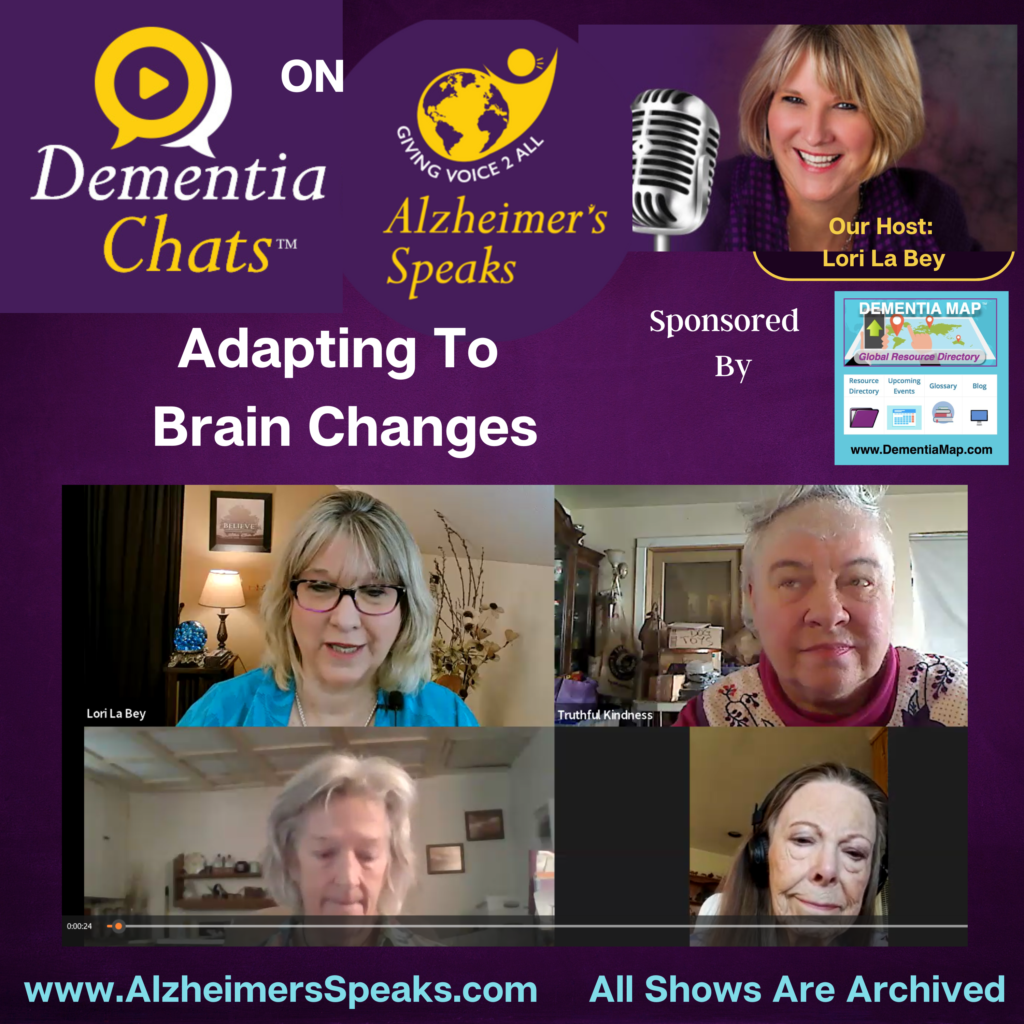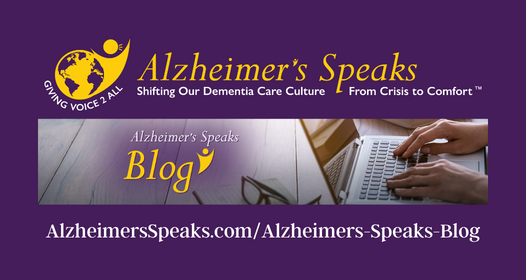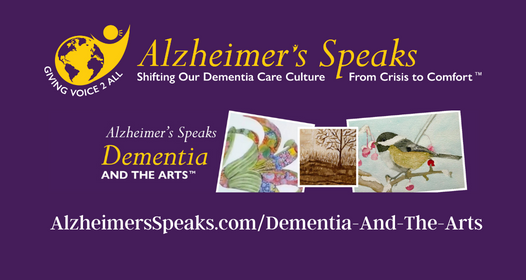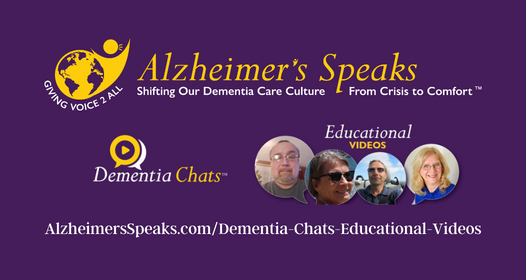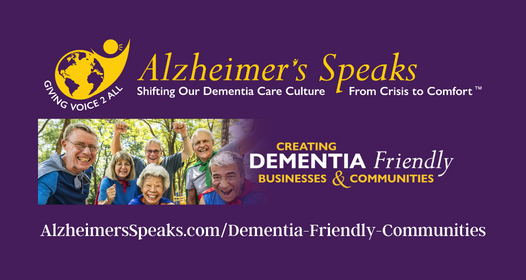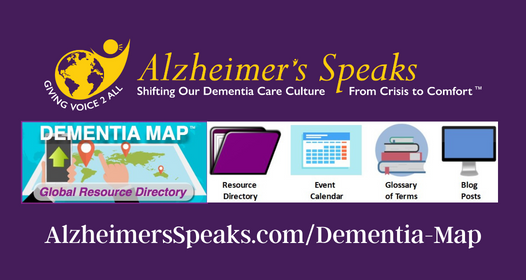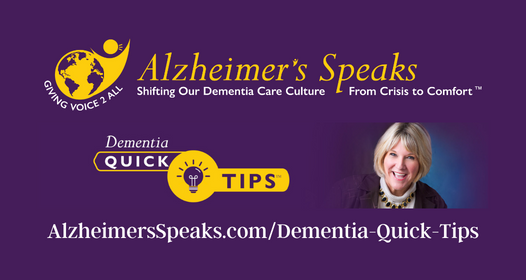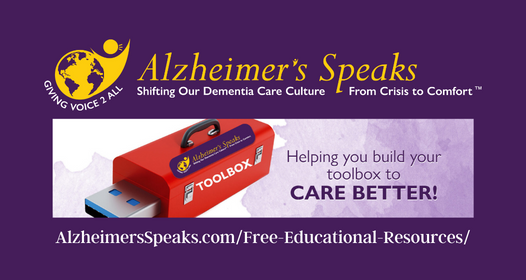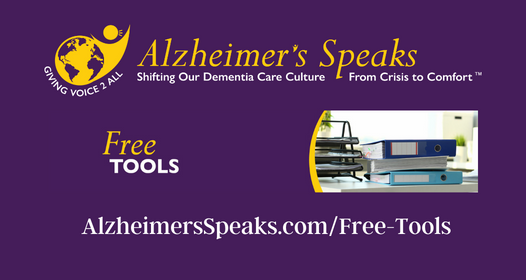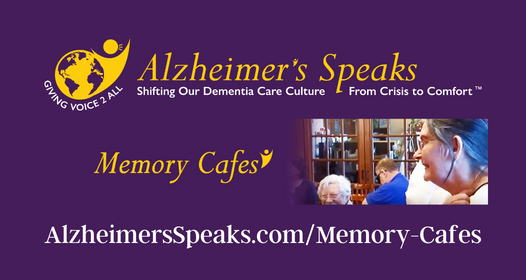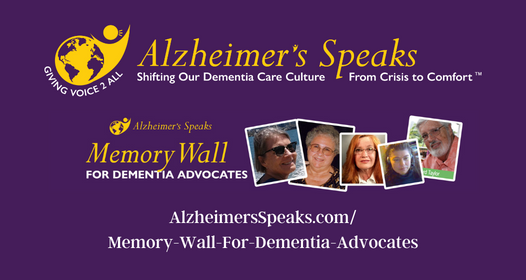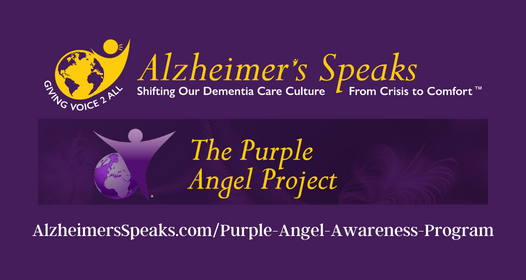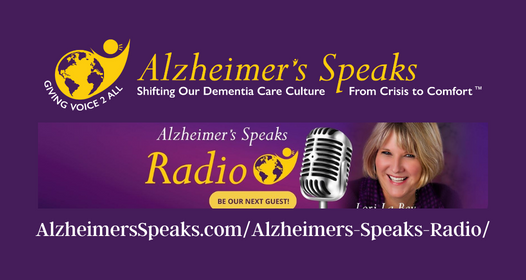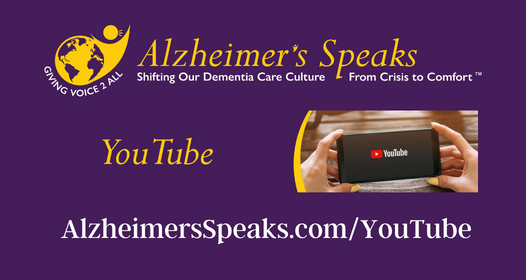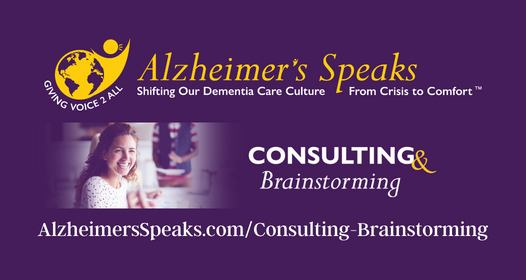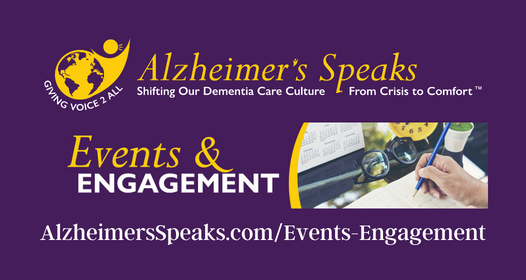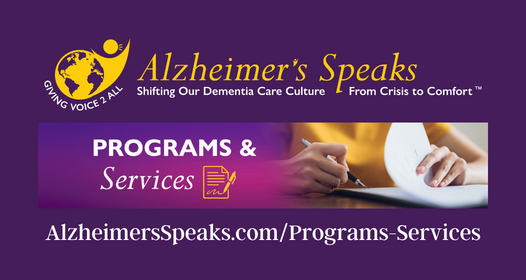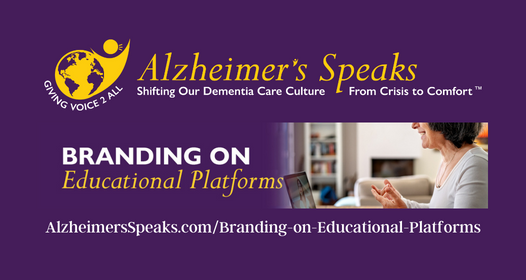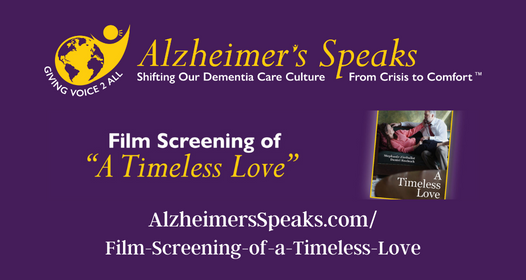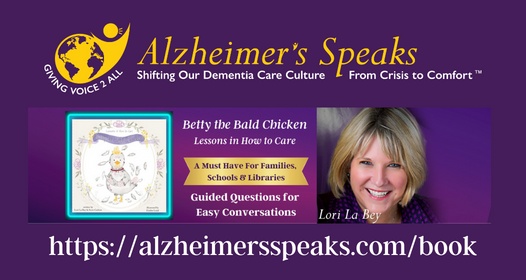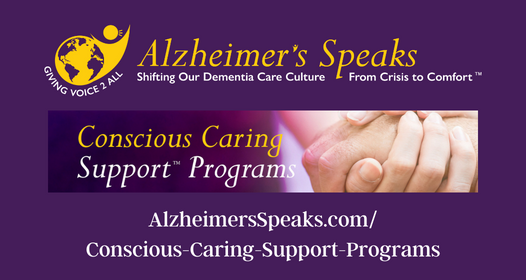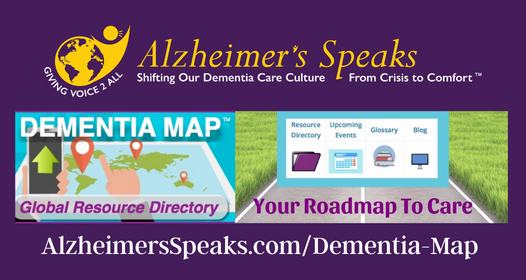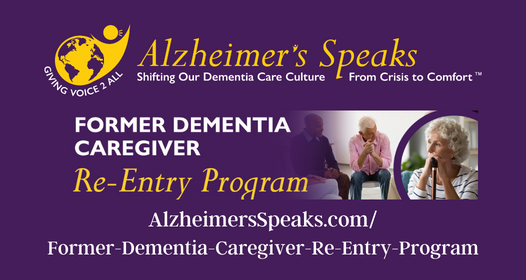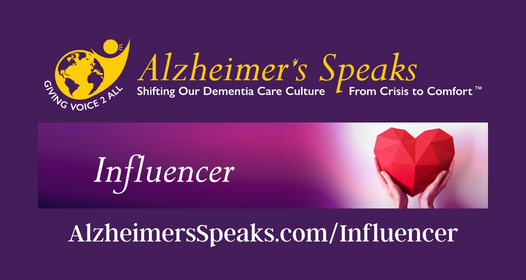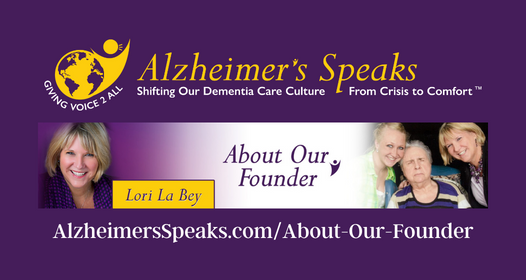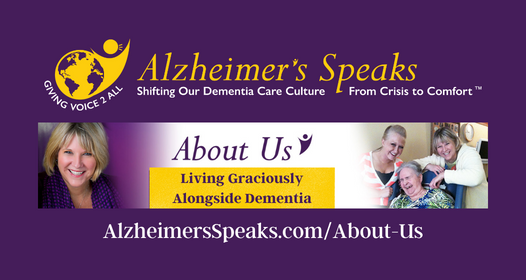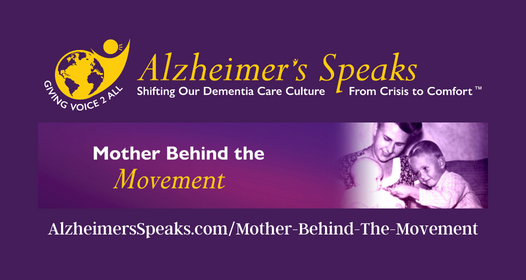Bridging the Silence: Communication Strategies for Loved Ones with Aphasia and Dementia

When actor Bruce Willis was diagnosed with aphasia in 2022, it brought national attention to a condition that quietly affects millions living with dementia, Alzheimer’s disease, or other dementia,s or caring for someone who does.
This condition isn’t just about forgetting words — it’s about loss of connection and being unable to say what you mean or understand what others are saying. If you’re supporting a loved one with cognitive challenges, communication may already feel like a fragile thread, but it doesn’t have to break. You can learn how to help someone with aphasia communicate.
What Aphasia Is and Isn’t
Aphasia is a language disorder, not a loss of intelligence. It can affect the ability to speak, understand, read, or write. As with Alzheimer’s, it affects someone’s ability to say what they want or how they feel.
Struggling to communicate is frustrating, but with patience and strategy, you can connect meaningfully. For those with dementia, language difficulties often develop gradually as the disease affects the brain’s language centers.
You may notice your loved one beginning to:
- Struggle to find words
- Speak in short or jumbled sentences
- Use the wrong word without realizing it
- Have difficulty understanding instructions
- Repeat phrases that don’t fit the conversation
11 Strategies to Help Someone With Alzheimer’s Disease or Other Dementias Communicate
Speaking to a loved one who struggles with these cognitive challenges is delicate. It requires some strategic actions and methods. For example, you could attend a communication workshop to learn new ways to connect or try creative engagement activities. Here are some additional strategies to help you connect.
1. Speak Less, Mean More
Short sentences make it easier for your loved one to process what you’re saying. Instead of explaining a story in five steps, reduce it to the key message.
Avoid saying, “Since the doctor’s office closed early, I had to reschedule your appointment.” Try, “I changed your appointment. The office was closed.”
Stick to one idea at a time, and allow a pause between thoughts. This helps prevent processing overload.
2. Ask Simple and Specific Questions
Open-ended questions can be overwhelming. Aim for simple choice-based or yes or no questions.
Try, “Do you want water?” instead of “What would you like to drink?” or “Chicken or soup for lunch?” instead of “What should we eat?”
These give your loved one a sense of autonomy without requiring too much language processing.
3. Let Them Finish Their Thought
It’s tempting to jump in when someone’s stuck on a word, but letting them try — without rushing — preserves their dignity. If they get frustrated, gently ask, “Would you like help?” before offering the word. If they say yes, offer prompts like, “Is it something you eat?” and “Can you point to it?” or “What does it look like?”
Simple verbal cues can jog their memory and keep the conversation going.

4. Watch Your Body Language
Communication is more than speech. Your tone, gestures, and facial expressions matter just as much. Use a warm voice and maintain eye contact. If your loved one can’t follow your words, use your body language to tell them they’re safe, loved, and heard. You can nod to show you’re listening and smile often.
5. Cut Out Distractions
Background noise makes it harder to focus. Before starting a conversation, turn off the TV or move to a quieter room. Sit face-to-face and make sure they’re focused before speaking. This small shift can dramatically improve how much they understand and how confident they feel about responding.
6. Try Visual and Tactile Tools
Images can help aid communication. Keep a notebook, whiteboard or simple picture cards nearby. Use them to point to objects, sketch basic ideas or label household items, like the fridge or bathroom sink.
Touch also helps people connect and feel safe enough to try speaking. Holding hands or offering a gentle shoulder tap can convey reassurance without words.
7. Respect Their Reality
People with dementia may say things that don’t align with what’s true, like asking about a parent who passed away years ago. Instead of correcting them, validate their emotion and gently redirect them. Avoid directly correcting them. Instead of saying, “Your mother passed away 10 years ago,” for example, you can try saying, “You really miss her. Do you want to tell me about a memory you have?”
This preserves the connection without causing them — or you — distress.
8. Don’t Pretend to Understand
It’s okay to admit when you didn’t catch what they said. In fact, it’s respectful. Ask them to repeat, rephrase, or show you in another way. You can say, “I didn’t get that. Can you say it again?” or “Can you show me or write it down?”
Gentle phrasing shows you value their words, encouraging them to keep trying.
9. Create Routines and Reminders
A simple visual schedule — on paper, a whiteboard or a digital device — can ground daily conversations. Your schedule can include meal times, medications or walks. Revisit the schedule often to reduce confusion and create moments of clarity. Say things like, “It’s lunchtime now. Do you want to help me set the table?” or “Let’s check what’s next on our list.”
Use familiarity and repetition to build confidence.

10. Use Music, Memory, and Movement
When speech falters, music often remains. Sing familiar songs together. Create a playlist of old favorites. Use rhythm and clapping to engage your loved one in ways that bypass language centers altogether.
Reminiscing about favorite places, flipping through photo albums or dancing to a cherished tune can offer joy. Engage them in art and consider connecting them to the wider world with exhibitions of their creations through initiatives like Dementia and the Arts™.
11. Take Care of Yourself
Caregiving takes patience, and communication setbacks can be tiring and disheartening. If you’re burned out, your loved one will feel it, too.
Step away when you need to. Take breaks, find support groups like Purple Angel or online discussion forums, or reach out to organizations like the Alzheimer’s Association. Remember, you’re not alone.

When To Seek Extra Help
Ask a doctor for a speech-language pathologist referral if communication worsens or frustration escalates. These professionals can tailor therapy and communication aids, even for people with advanced dementia.
You might also want to get their hearing and vision checked. Sometimes, what seems like confusion is about not seeing or hearing clearly.
Communication Is Possible — Even Without Words
Aphasia doesn’t erase your loved one’s personality, memories or need for connection. While their words may fade, your effort to reach them speaks louder than language.
Consistency, compassion, and presence matter. Some of the best conversations might happen in silence through a shared song, a held hand, or a moment of simply sitting side by side. Cherish these times.
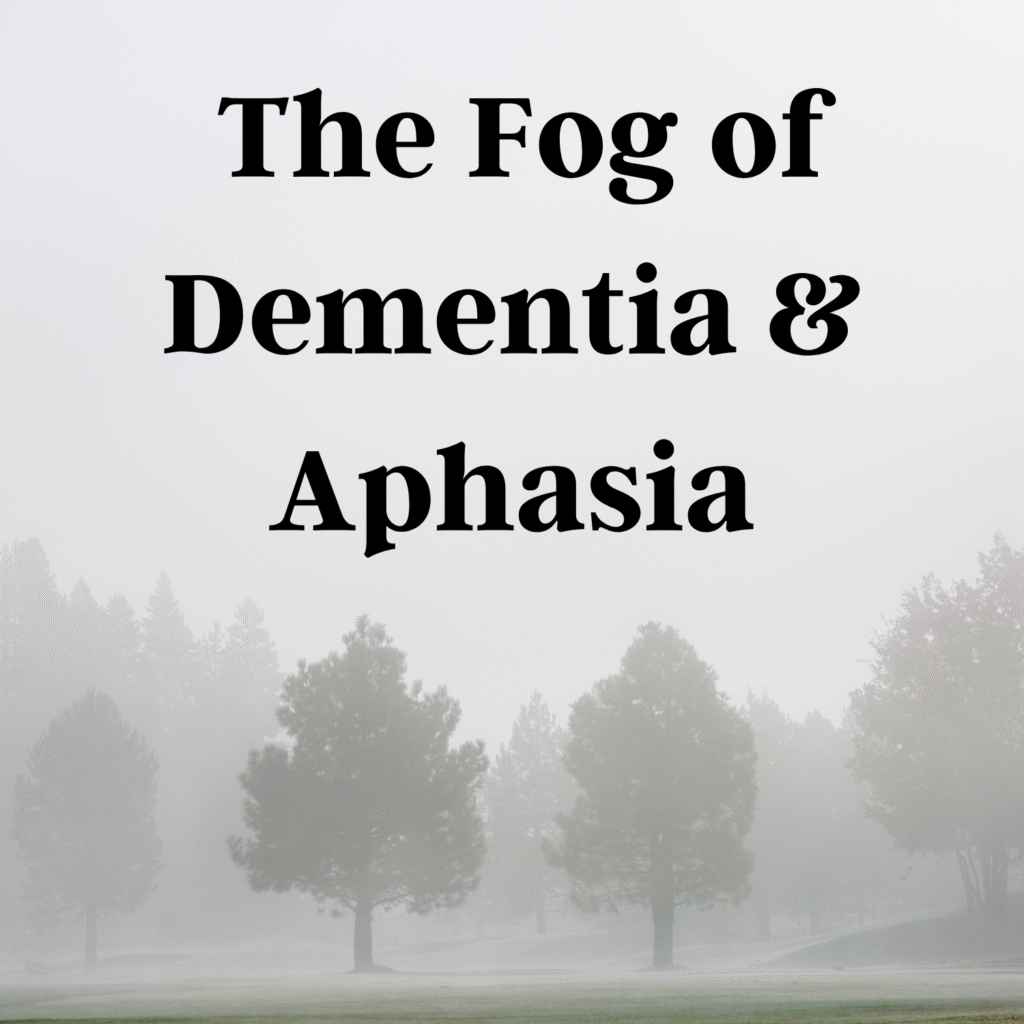
Even in the fog of dementia and aphasia, the connection can bloom again.
By Beth Rush, Founder and Managing Editor, Body+Mind Magazine

Contact Lori La Bey or set up a time to chat with her. Get your questions answered or discuss your branding needs.
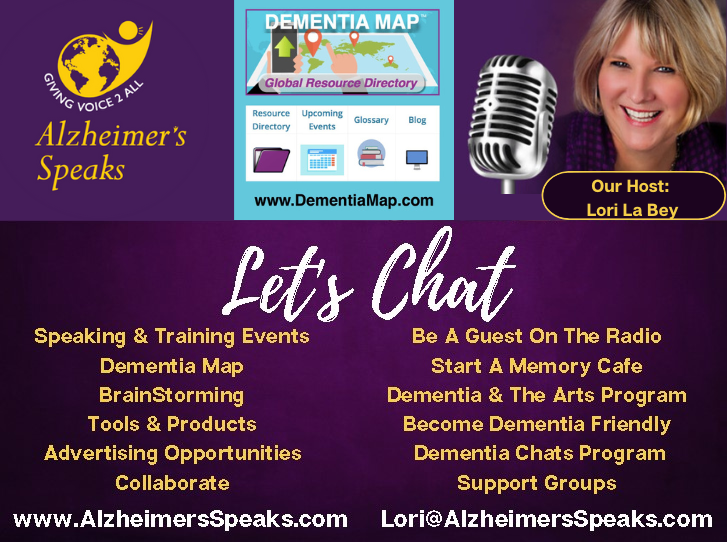
Join the “Giver Of Hope” cause and download your graphic here.

Listen & Subscribe to Alzheimer’s Speaks on Your Favorite Podcast

Contact Us To Be On The Next Open Mic https://alzheimersspeaks.com/be-a-guest/
We are Thankful once again for being honored as a Top 10 Podcast! Thank you, Million Podcasts.
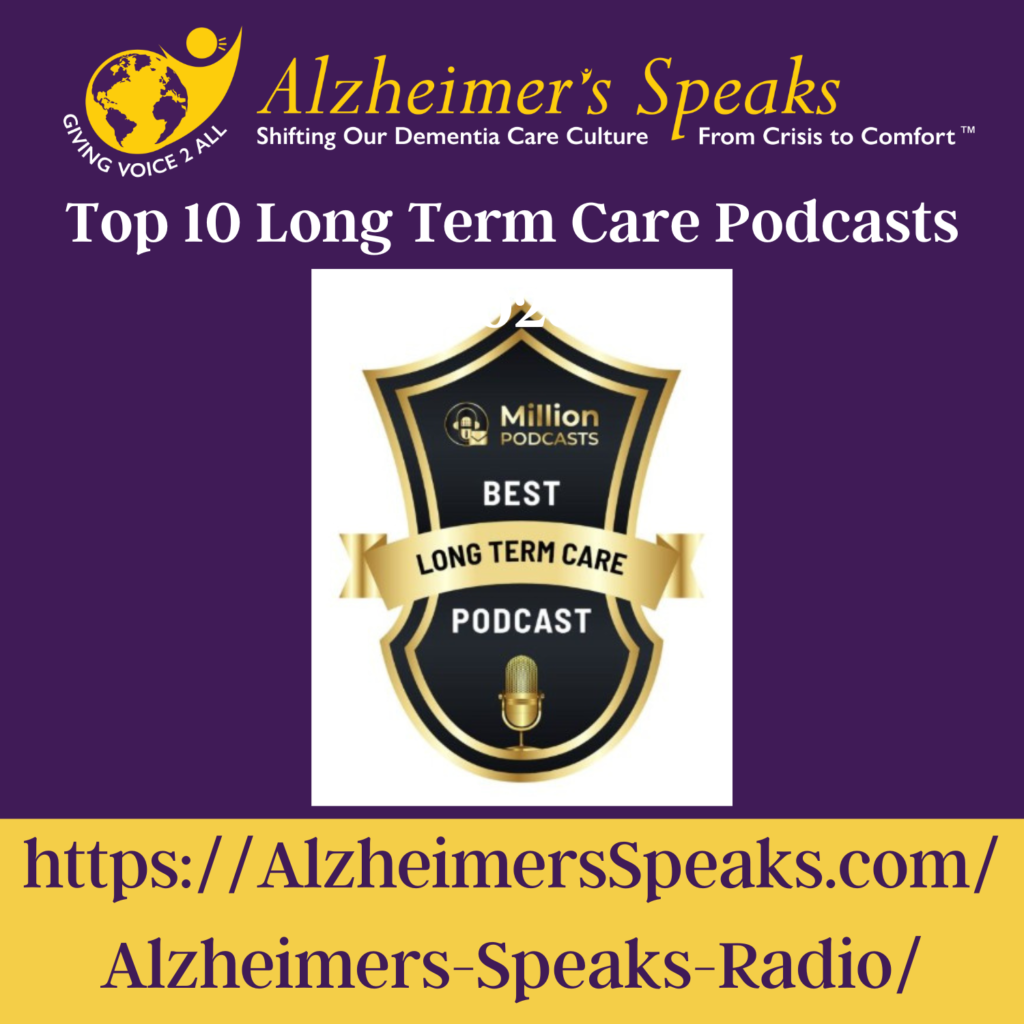
And How They Are Busting Stigmas By Highlighting Possibilities
Dementia Map Global Resource Directory https://www.dementiamap.com
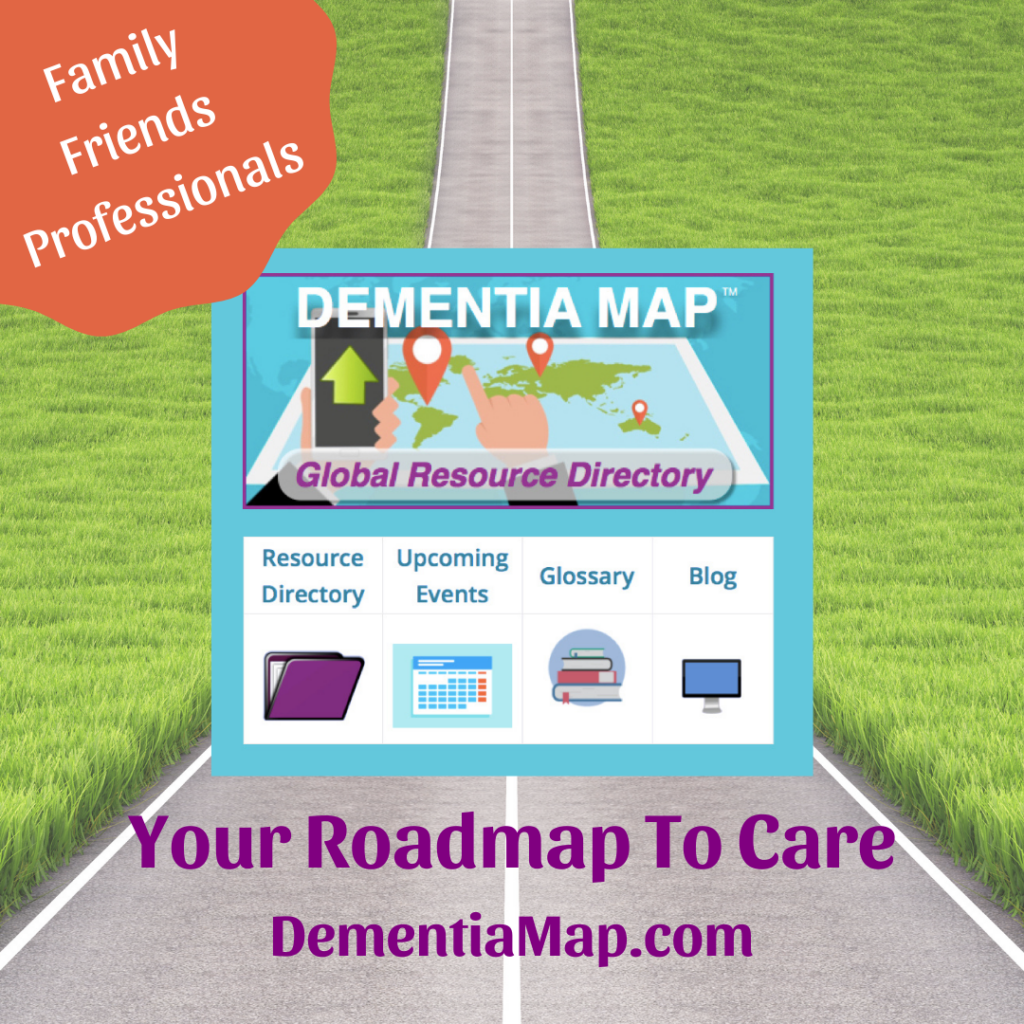
Learn About The Programs Alzheimer’s Speaks Offers
Talk To Lori La Bey About Your Next Speaking Event for Staff or Families. She Offers A Variety Of Keynotes, Breakout Sessions, Trainings, and Fundraising Asks

PLAN AHEAD! Maude’s Awards gives three annual $25,000 awards to organizations and up to five $5,000 awards to individuals. Applications are are currently closed
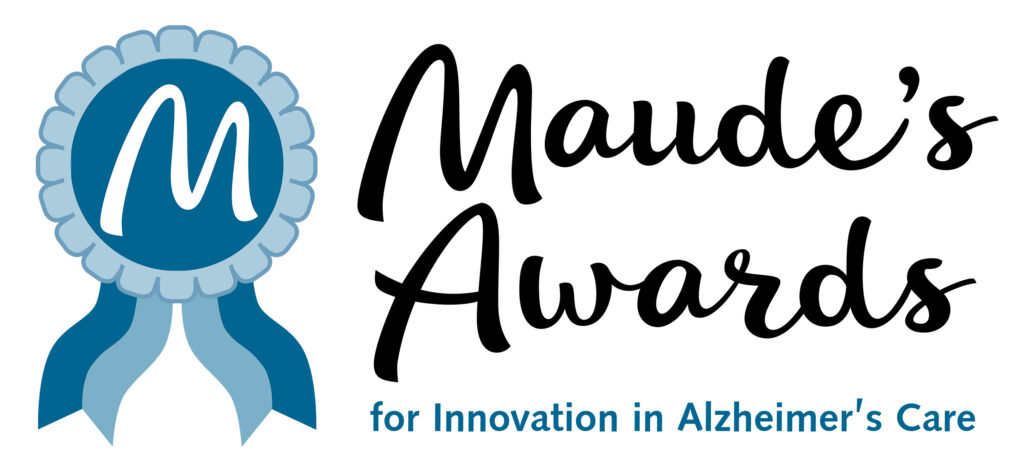
Check Out Alzheimer’s Speaks FREE Educational Resources
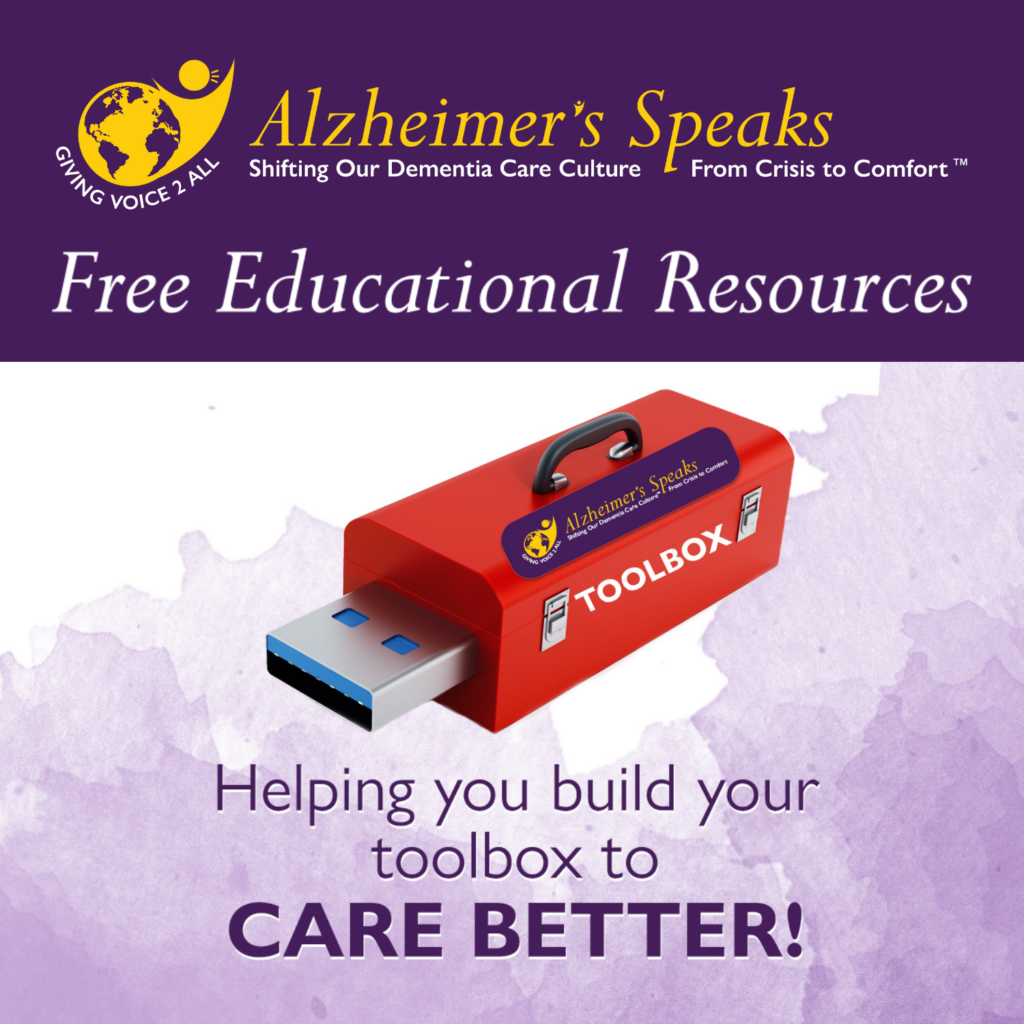
Conscious Caregiving with L & L is a monthly program covering tough conversations to raise awareness, provide support, and make resources. available. Watch the video now.

Learn More About Dementia Chats





